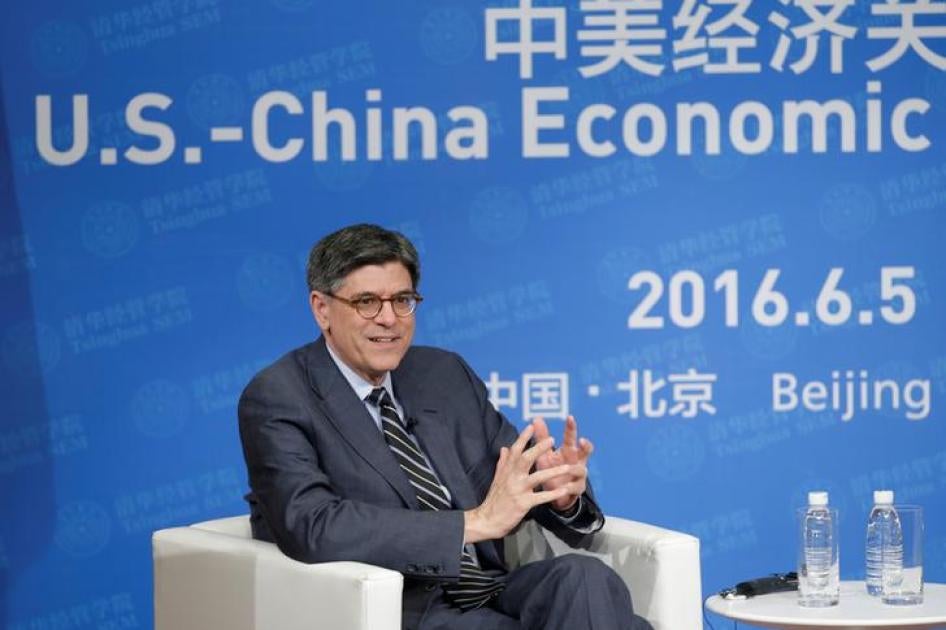(New York) — The United States should make the need for progress on key human rights issues in China a top priority in the final US-China Strategic & Economic Dialogue (S&ED) for the Obama administration, Human Rights Watch said today. The talks, involving more than a dozen agencies from each government, will be held in Beijing from June 6-8, 2016.
“This is the Obama administration’s last best chance to show it incorporates human rights across the scope of the bilateral relationship and demands change, from law enforcement cooperation to surveillance on ethnic minority regions, to Beijing’s ferocious assault on civil society,” said Sophie Richardson, China director at Human Rights Watch. “US human rights advocacy with China can succeed when it is unapologetic, public, and argued by diverse interests.”
- Meet with representatives of civil society in China during or immediately after the meeting;
- Press Chinese counterparts to repeal or bring into line with international law new national security laws, including the Counterterrorism and the Foreign Non-Governmental Management laws;
- Publicly call for the release of specific individuals detained for peacefully exercising their rights; and
- Publicly discuss US concerns about growing restrictions on the rights to freedom of expression and religion, among others.
The talks create an opportunity for the US to take unequivocal steps towards integrating human rights into its wider strategic goals and to make clear the priority it assigns to these issues, Human Rights Watch said.
Since the June 2015 strategic dialogue, the US has issued statements expressing concern about a range of human rights abuses in China, including the July-September 2015 sweep of lawyers and activists across the country, 25 of whom remain detained. The US has also publicly called on Beijing to repeal or not adopt abusive laws, including the Foreign NGO Management Law. In March, it spearheaded an unprecedented statement at the United Nations Human Rights Council, calling on China to end its arbitrary detention of lawyers and activists, and its extraterritorial abuses.
At the same time, Chinese authorities have committed or tolerated gross human rights violations. Few members of the police or other security forces are held accountable for torture or other abuses, and there is no political or legal impulse for fundamental reforms necessary to curb their power. Peaceful prominent activists, including Guo Feixiong and Tang Jingling, have been given harsh sentences, some on vague charges of “disturbing public order.” Nor is there any progress towards accountability for the June 3-4, 1989, Tiananmen Massacre, the 27th anniversary of which came just two days before the opening of the strategic talks.
Human Rights Watch has long encouraged the US and other governments to take a broader approach to human rights in China, particularly as the number of government agencies and officials interacting with Chinese counterparts has grown exponentially over the last decade.
Greater human rights protections in China are in the US interest, and raising these concerns outside the normal channels, through diverse and coordinated actors, is more likely to produce results.
US officials have described their strategy as a “whole of government” approach. Yet there is little evidence that officials, other than those from the State Department or the White House, are raising such concerns.
“President Xi and his government have sadly left the US spoiled for choice on which human rights issues to raise,” Richardson said. “The question is: will the US use its whole weight at the S&ED talks with China to push back effectively?”








